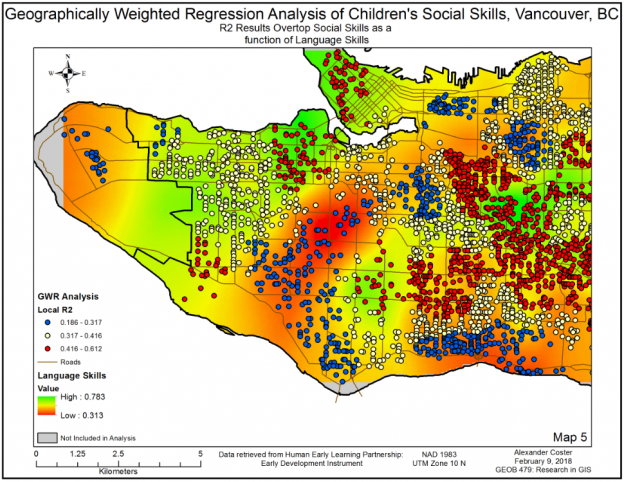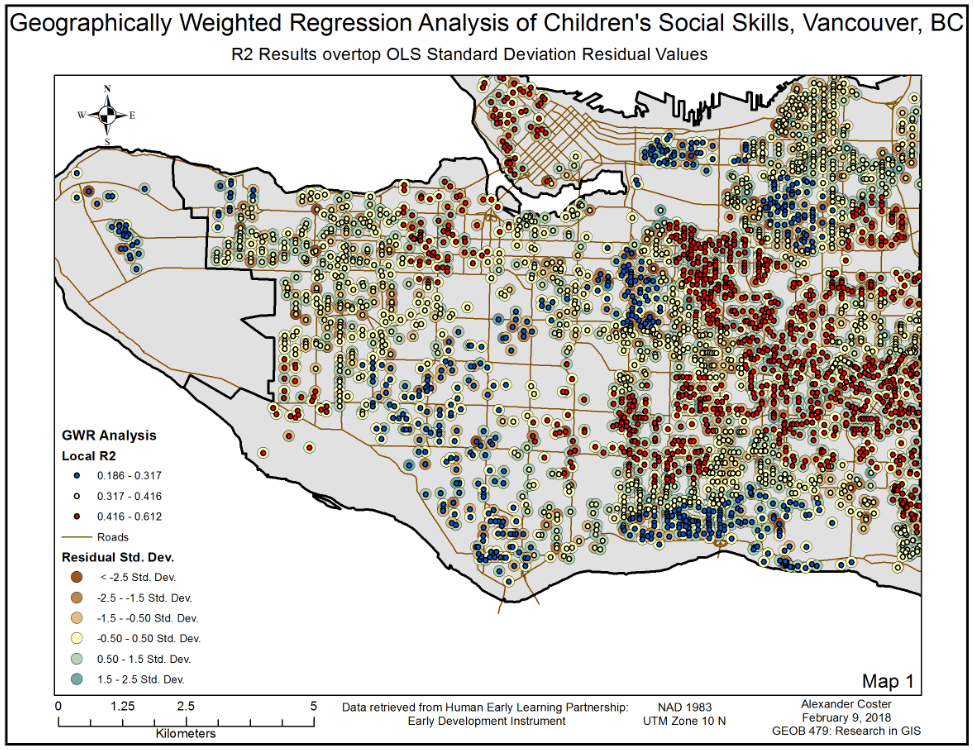Geographically Weighted Regression (GWR) is a regression technique for exploratory spatial data analysis. It is a form of linear regression analyses: it has predictor (independent) variables and a target (dependent) variable. The outcome is a set of estimated parameter values for each explanatory variable at every location obtained via weighted least squares. It includes distance, number of neighbours, bandwidth method (how great an influence surrounding areas have on the locally specific parameter estimates) and kernel type (fixed distance or varying as a function of feature density). It is like regression that is also sensitive to geographic relations among the variables: nearby value locations will influence the regression more than far away ones. This allows parameters to vary over space in a traditional OLS regression framework and specifies a separate regression model at every observation point, thus enabling unique coefficients to be estimated at each observation location.
This Lab used the GWR technique on social skills data obtained from the Human Early Learning Partnership: Early Development Instrument. 2815 observation points, 3 variables for OLS and GWR (language, gender, income), and 5 variables for a Enumeration Area Grouping Analysis (childcare, family of four, recent immigrant, lone parent, income). OLS and GWR results did not always coincide.
OLS found a strong negative correlation with gender, and a positive correlation with language. GWR found the most consistent pattern of high R2 values and high correlation was with language skills: areas of high coefficients of social skills as a function of language skills usually produced high R2 values as well. Gender and income coefficients high coefficients more often were accompanied by varying R2 results, suggesting a reduced significance of these variables.
